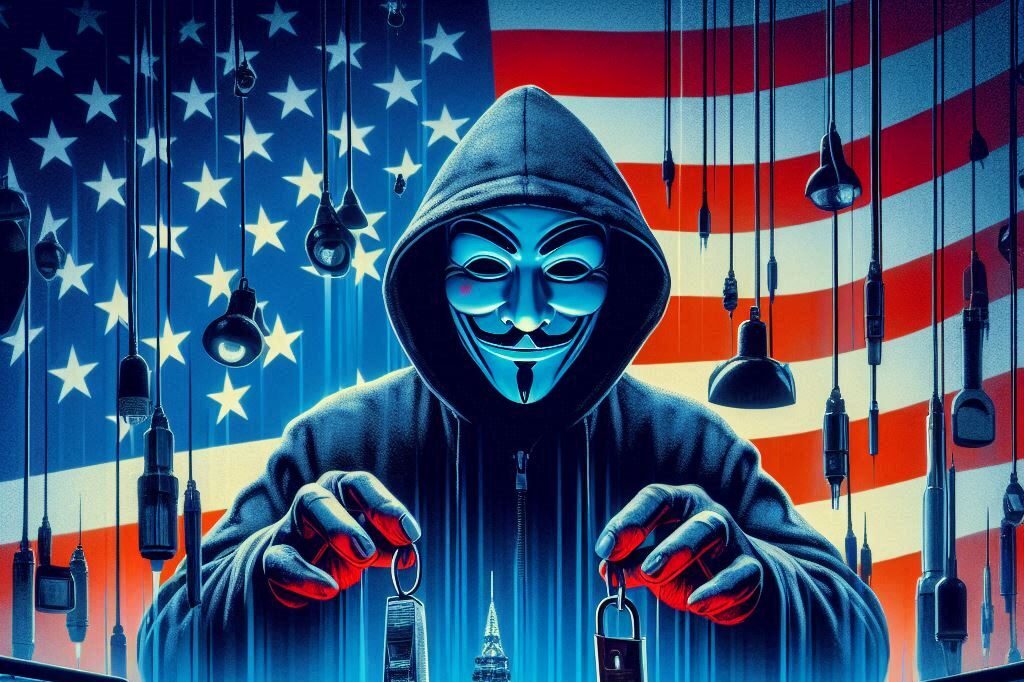Chinese Hackers Breach U.S. Telecom Providers, American Business Data in Jeopardy

In a new chapter of high-stakes cyber warfare, Chinese hackers have breached at least three major U.S. telecommunications providers, gaining access to sensitive networks. U.S. officials suggest the breaches, which compromised companies like Verizon, AT&T, and Lumen, were likely part of an espionage operation aimed at uncovering Chinese targets under American surveillance. This operation, which U.S. officials suspect is linked to China’s Ministry of State Security (MSS), raises alarm bells across American businesses that rely on these providers for their communications and data management.
The breach, characterized by its audacity and sophistication, has left U.S. intelligence agencies scrambling to assess its full impact. While the exact scope of compromised data remains unclear, early reports suggest the hackers may have accessed sensitive information, including lawful federal wiretap requests and broader internet traffic. Such access could potentially reveal the U.S. government’s surveillance targets and operations, putting national security at risk.
Former DHS Cybersecurity Executive Brandon Wales emphasizes the implications of this breach, stating, “This has all the hallmarks of an espionage campaign — one with potentially deep access to the most important communication companies in the country. The impacts are potentially staggering.” With the hackers reportedly in the systems for months, the true extent of the breach could be far-reaching.
A Disturbing Breach at the Core of U.S. Infrastructure
This incident underscores a troubling reality: if hackers control the “wire” or infrastructure itself, traditional security measures like passwords and basic encryption no longer guarantee safety. It’s not just the telecom giants that suffer, but every company relying on them to transmit data. From payroll processing to handling sensitive financial transactions, businesses are now exposed to risks that are impossible to control at their core infrastructure.
However, there is a solution that can neutralize the dangers posed by even the most sophisticated attacks on communication infrastructure: Zerocrat’s zero-knowledge architecture.
Why Zerocrat Users Are Protected, Even When the Network Is Compromised
While businesses using traditional financial software are at risk during such breaches, users of Zerocrat’s accounting software would remain completely unaffected. Zerocrat employs a zero-knowledge encryption model, which means all data is end-to-end encrypted from the moment it’s created. No intermediary, not even Zerocrat itself, has access to your data. Even if hackers were to compromise the network infrastructure of your internet service provider, they would only see unreadable, encrypted data passing through.
This architecture ensures that not only the wire but every layer between your business and its proprietary financial information remains secure. The compromised routers, switches, and telecommunications providers could do nothing to expose or manipulate your data. Unlike traditional accounting solutions that leave you vulnerable at the provider level, Zerocrat ensures that your business’s financial flows and sensitive information remain confidential, even when the network is compromised.
Understanding Zero-Knowledge Encryption in a Zero-Trust World
The breaches affecting major U.S. telecom providers make it clear that even the most trusted infrastructure is vulnerable. This is where the concept of zero-knowledge encryption sets Zerocrat apart. In a zero-trust world, where any component of the system can be compromised, Zerocrat ensures that no entity—trusted or otherwise—can access your data without your explicit authorization.
This approach goes far beyond the zero-trust model that many companies, including T-Mobile, have started to adopt in the wake of their own data breaches. While zero-trust assumes no one should be inherently trusted and verifies every interaction, Zerocrat’s zero-knowledge model takes it one step further: there’s no need to verify because nobody, not even the service provider, has access to decrypt your data. In essence, there is nothing to compromise, even if hackers infiltrate the infrastructure through which your data flows.
National Security Breaches Highlight a New Era of Cyber Threats
The breach involving Chinese hackers has stark national security implications. Gaining access to networks that carry lawful federal wiretaps and sensitive information poses a massive intelligence coup for the Chinese government. Hackers can intercept not just business data but also crucial surveillance information that could be used to undermine the U.S. government’s intelligence operations or even distribute disinformation.
In such a high-stakes environment, American businesses must now treat their financial data as if it’s constantly under threat. Whether it’s the government, foreign espionage, or cybercriminals, any weak link can lead to devastating leaks. But companies using Zerocrat can rest assured: even in the face of these complex threats, your financial data is protected by a robust and uncompromising security model.
Conclusion: Data Breaches Are Inevitable—But They Don’t Have to Be Devastating
The increasing complexity and frequency of cyberattacks, particularly those targeting critical U.S. infrastructure, show no signs of slowing down. The telecom breaches involving companies like Verizon and AT&T highlight just how fragile the backbone of the internet can be in the face of determined adversaries. But while attackers may be able to breach the infrastructure, they will find nothing but encrypted, indecipherable data when it comes to Zerocrat.
By adopting Zerocrat’s zero-knowledge encryption model, businesses ensure that even when networks are compromised, their most sensitive financial information remains secure. In today’s dangerous cyber landscape, Zerocrat stands as the most resilient and future-proof solution to protecting your business data from even the most sophisticated espionage attacks. The wire may be compromised, but your privacy will never be.
